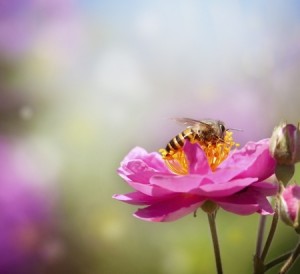Your New Year’s resolutions might have included a pledge to keep the garden looking neat and tidy, and it may well have been a resolution that was made with no urgency in effecting it; it’s far too wet at the moment to do too much work in the garden and by the time it dries out the resolutions will have been long forgotten. Alternatively, you could make a resolution to do less in the garden, and provide more of a habitat for wildlife, or at the very least cut down on the regularity of mowing.
Thank you for reading this post, don't forget to subscribe!

In the USA there are often strict penalties for not mowing your grass, as one man from Goose Creek, South Carolina, found out. Benjamin Moore was warned by the City Code Enforcement officers that he needed to cut his grass and tidy the outside of his property, as this is taken very seriously by the City Council. Unfortunately, Moore’s lawn mower had broken down half way through the job, and he had not had time or money to fix the lawn mower, meaning the grass was left to grow much longer than the City found acceptable. He was jailed and ordered to pay over $1,000 in fines, which he duly did in order to be released. This treatment seems a little excessive; in the UK you would hardly be sent to prison for not cutting your grass.
Luckily we are much more lenient when it comes to garden maintenance, and only severely dishevelled gardens are dealt with by the authorities. Most people can let their grass grow long and go several weeks between runs with the lawn mower. There is also a resurgent interest in natural and sustainable technologies for managing grass growth, thanks in no small part to Aidan Turner in Poldark, whose shirtless scything scene sparked a discussion about proper scything technique. Slowly people are turning to man-power instead of the electric or petrol lawn mower, preferring instead to scythe or return to the old cylinder mowers. Animal power is also a popular alternative, as chickens and sheep will happily graze a lawn and keep it fertilised in return.
However you decide the manage grass growth, whether it be an electric lawn mower or a flock of sheep, it is important to be more lenient with the amount of mowing that goes on in order to let the grass grow enough to be healthy. The blades are what turns the sunlight into food for the roots thereby ensuring continued growth, so the more of the blade you remove, the less the grass will grow. This sounds like a shortcut to mowing the lawn less often, but what happens instead is the grass dies, leading to reseeding and a long wait before the lawn returns. If you cut less often and at a higher height, the health of the grass will improve dramatically.

There is also a rise in rewilding projects and returning swathes of land back to their intended state. Several conservation projects in Sussex have shown that using livestock to graze the grass has helped the nitrate levels in the soil, leading to better plant growth and a more diverse range of flora. You can do this on a smaller scale by leaving part of your garden to grow wild with minimal intervention. Leaving long grass will encourage the pollination of grasses, thereby improving the quality of the nearby lawn as well as providing a haven for butterflies, bees, small mammals and garden birds.
Not only will you have a thriving and self sustaining ecosystem in your garden, you will also have saved yourself some time behind the lawn mower which you can put towards observing the natural habitat in your garden.
